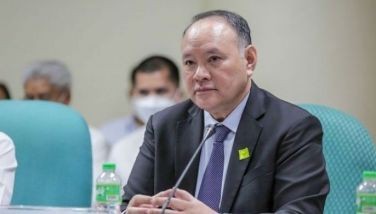House won’t restore BBL
MANILA, Philippines - The leadership of the House of Representatives has rejected the request of the Bangsamoro Transition Commission (BTC) to restore at least 28 provisions deleted by lawmakers from the proposed Bangsamoro Basic Law (BBL).
Cagayan de Oro Rep. Rufus Rodriguez, chairman of the 75-member House ad hoc committee on the BBL, said he and other leaders of the chamber met last week with Mohaquer Iqbal, who is both chairman of the BTC and chief negotiator for the Moro Islamic Liberation Front (MILF).
Also present during the meeting were the vice chairmen of the ad hoc panel as well as Majority Leader and Mandaluyong City Rep. Neptali Gonzales II.
The BTC drafted the BBL and is composed of representatives from the MILF and other sectors from Mindanao. The BBL, a product of negotiations between the government and the MILF, seeks to create a new autonomous region in Mindanao.
“It has been the consensus that these provisions that we removed – there were many deletions as well as amendatory language – are really very important and necessary to make the bill constitutionally compliant,” Rodriguez told radio station dzBB.
“In other words, if these provisions are restored, we believe that it may not be able to pass the Supreme Court’s constitutional scrutiny. That’s what we’ve explained to them over and over again during our meeting,” he said.
Rodriguez warned that restoring the deleted or amended provisions could erode support for the BBL in the chamber as many lawmakers, who had been strongly opposing the measure, have agreed to back the bill because of the changes.
He said they impressed upon Iqbal and the other BTC members that they wanted to pass a BBL acceptable not only to the House and the Senate but also to the SC.
“I hope that the MILF will see that what we have done is for the best interest of the Bangsamoro and also for Congress,” Rodriguez said.
He said the House leadership, however, still asked the BTC to submit a clearer explanation of their request as the letter it sent last month contained only bullet points.
The Senate, for its part, has replaced the entire version of the BBL with its own, through the efforts of Sen. Ferdinand Marcos Jr., chairman of the local government committee tackling the proposed measure.
Marcos defended the new basic law on Bangsamoro Basic Region, adding there was no intent from the Senate committee on local government to sabotage or delay approval of the measure.
“If we really wanted to sabotage the basic law, we would have not touched it. But that was not our goal. Our goal was to craft a basic law that is constitutional so that we can have peace. We are still working for peace. We had to fix this, this could have been junked like MOA-AD,” Marcos said, referring to the Memorandum of Agreement on Ancestral Domain which was junked by the Supreme Court as unconstitutional in 2008.
Marcos noted that it took some time before the draft measure was submitted to Congress by the peace negotiating panel. This was after the Jan. 25 Mamasapano incident that caused a major setback in the hearing of the draft BBL.
“The draft BBL is highly unconstitutional. I don’t know if this has an impact on (the President’s) impeachment but all I know that it was a law that we cannot pass,” Marcos said over dzBB.
Marcos said he is ready for the period of debates and amendments for the measure. He expressed confidence that the substituted measure has addressed the constitutional issues of the proposed basic law.
In the process, Marcos said the President was spared from any embarrassment once the measure is scrutinized over its constitutionality.
Debates
Marcos noted, however, the differences in the version of the House and the Senate might cause further debates on the matter.
“It’s very hard to anticipate on how long the debates will take. I know for sure that during period of interpellation, many senators will ask a lot of questions and during the period of amendments, it would be the same. They have their own ideas on how to make the bill better. So it’s just impossible to predict,” Marcos said.
Explaining the reasons behind the changes, Marcos said many of the provisions of the bill treated the Bangsamoro government similarly to other local governments in the country, in order to draw them closer to mainstream Filipino society instead of treating them as a separate group.
He said the measure was beneficial and fair to all Moros and non-Moros alike.
“I believe we tried very hard to be fair to everyone concerned,” Marcos said when asked about allegations that his substitute bill, Senate Bill No. 2849, presented a watered down version of powers granted to the Bangsamoro government.
This principle guided the substitute bill’s provisions on the authority of the Bangsamoro government over Lake Lanao, which some critics in social media have tagged as “anti-Moro.” With Christina Mendez
- Latest
- Trending






























